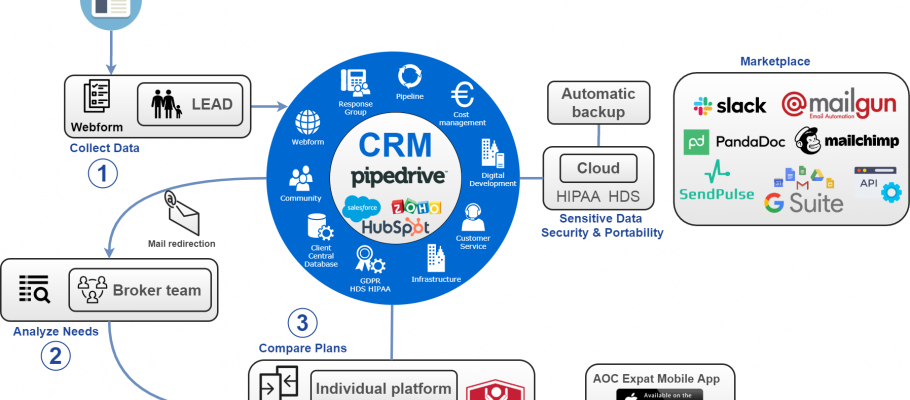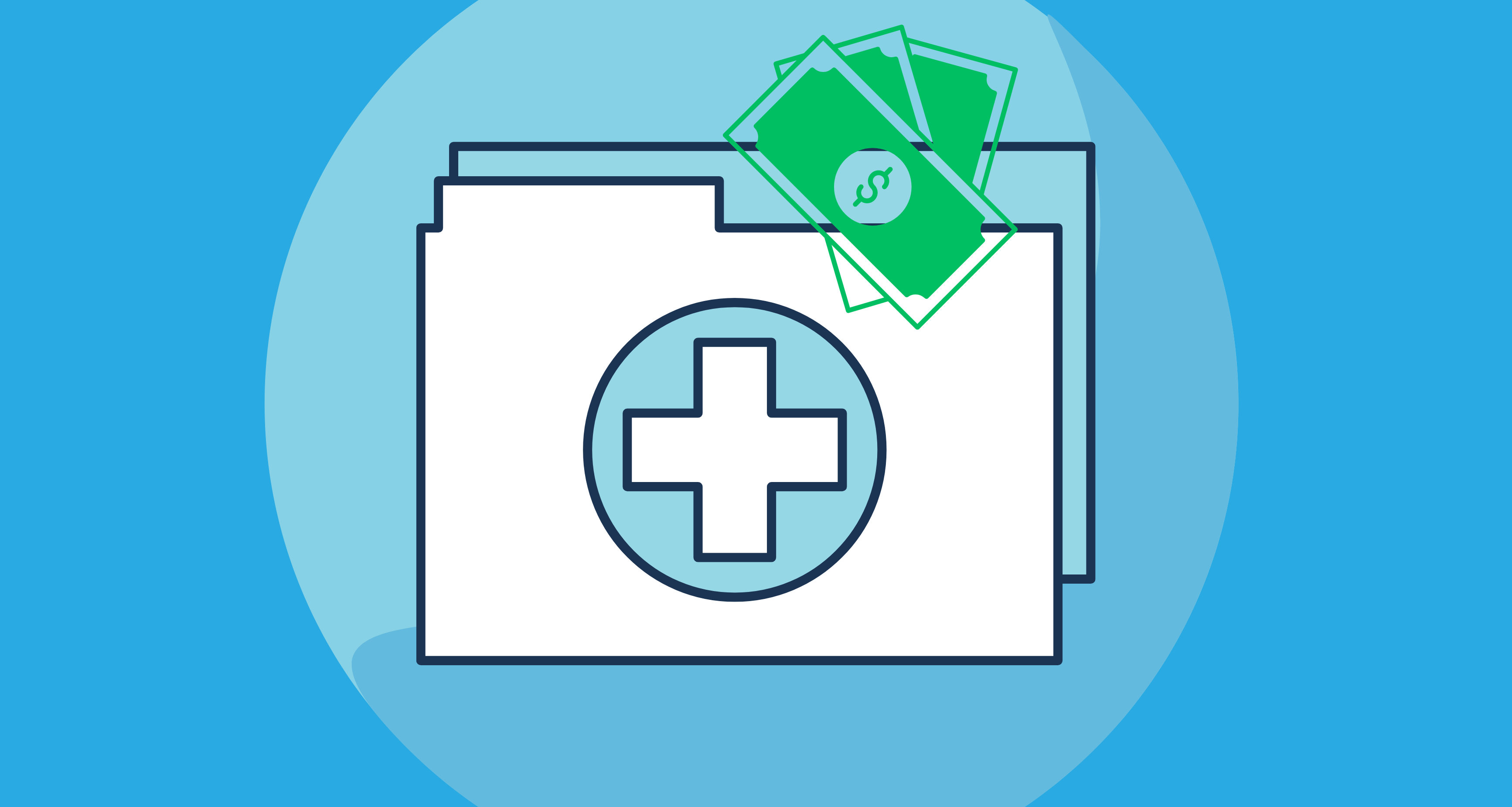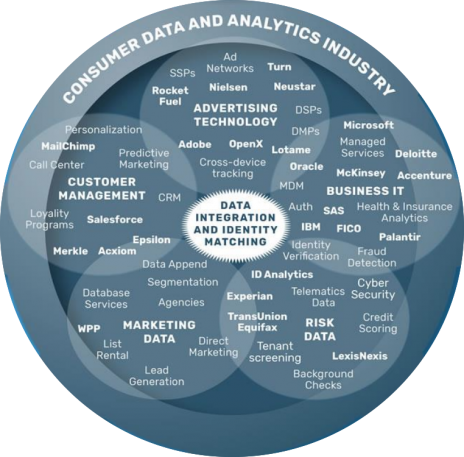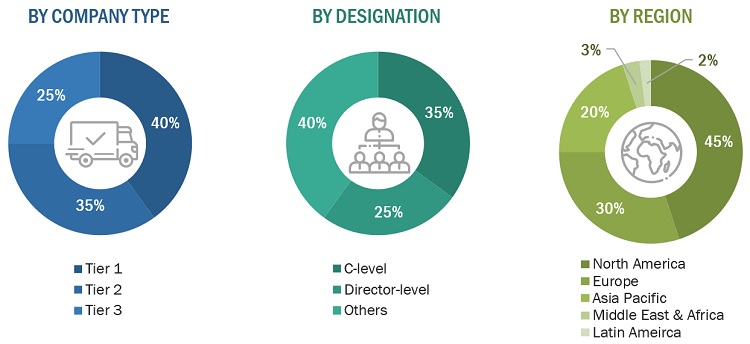
In today’s interconnected environment, the exchange of sensitive health data is becoming increasingly prevalent. Individuals may not fully realize how much of their private information circulates beyond the walls of clinics and hospitals. The dynamics of this marketplace are intricate and often shrouded in mystery. As technology advances, the implications of sharing personal health details generate significant debate.
On one hand, the availability of health-related data can foster innovation. Researchers and companies may utilize these insights to develop new treatments or enhance patient outcomes. However, the very act of sharing such sensitive material raises ethical concerns. It creates a landscape where privacy can be compromised, potentially leading to misuse.
Individuals often feel apprehensive about their health records being part of an expansive network. The potential for exploitation looms large. Although there are regulations aimed at safeguarding privacy, enforcement can be inconsistent. Furthermore, the sheer volume of parties involved complicates accountability.
Yet, one cannot ignore the positive aspects that stem from this practice. Improved access to aggregated health trends can facilitate public health initiatives and resource allocation. The balance between progress and protection remains delicate. Stakeholders must navigate this terrain with caution, prioritizing the well-being of individuals without stifling innovation.
Ultimately, the issue encompasses a range of factors that deserve thoughtful consideration. From technological advancements to ethical dilemmas, the conversation is multifaceted. As we delve deeper, understanding the implications of sharing personal health history can illuminate both challenges and opportunities. Awareness is key; staying informed is crucial for navigating this evolving landscape.
Understanding the Role of Data Brokers
In today’s interconnected world, the utilization of personal health details has reached unprecedented levels. While many individuals may not recognize it, their health information often circulates among various entities, driven by the goal of enhancing services and outcomes. This section delves into the intricate mechanisms by which personal health information is gathered and shared, highlighting the multifaceted processes involved.
Firstly, the collection of health details can occur through numerous channels:
- Clinical visits
- Lab tests and imaging studies
- Wearable health technology
- Patient surveys and questionnaires
- Online health portals
Each of these avenues plays a significant role in compiling a comprehensive health profile. For instance, a visit to a healthcare provider often involves not just a conversation but also the collection of various metrics. These could include vital signs, medical history, and treatment outcomes. This information is crucial for providing effective care and understanding overall health trends.
Moreover, technology has revolutionized this collection process. With the advent of electronic health records (EHR), the ability to gather and store patient information in a digital format has expanded significantly. This technological shift allows for faster access to information, enabling healthcare professionals to make real-time decisions. Nevertheless, the convenience of immediate access can lead to challenges in ensuring data security and privacy.
Organizations utilize several methods to track and manage health information. This may encompass:
- Automated data entry systems
- Patient engagement applications
- Partnerships with research institutions
- Collaboration with insurance companies
As a result, personal information is often aggregated and analyzed for patterns and trends. Such analysis can provide invaluable insights into public health, treatment efficacy, and even the emergence of new health challenges. However, it is essential to recognize that the mechanisms behind this information collection are complex and often opaque to patients.
In conclusion, the ways in which health information is gathered are diverse and multifaceted. clear your name from internet listings clinical interactions to technological innovations, these processes intertwine, creating both opportunities for improved care and challenges regarding privacy. Understanding these mechanisms is vital for anyone navigating the modern health landscape.
How Medical Data is Collected
The gathering of health-related information involves a complex interplay of various sources and techniques. From hospitals to wearable devices, every avenue contributes to a vast pool of insights about individuals. Understanding how this collection occurs is crucial for grasping the larger picture of patient care and treatment. It is not merely about numbers or statistics; it represents real stories behind each data point.
- Hospitals and clinics often initiate the collection process.
- Electronic health records (EHRs) play a significant role.
- Wearable technology continuously tracks personal health metrics.
- Surveys and questionnaires gather valuable patient-reported outcomes.
- Research studies often compile data for scientific evaluation.
In addition to these traditional methods, digital platforms have emerged as powerful tools for collecting health information. Patients frequently share their experiences online, whether through social media, forums, or dedicated health applications. These platforms can provide insights into treatment effectiveness, patient satisfaction, and emerging health trends. Moreover, mobile applications have revolutionized how individuals monitor their well-being by enabling real-time tracking of vital signs, symptoms, and medication adherence. Such technology not only enhances personal awareness but also contributes to a broader understanding of population health dynamics.
The role of pharmacies cannot be overlooked in this context. They maintain detailed records of prescriptions, which can be analyzed to identify patterns, trends, or potential health concerns. This information can be invaluable for improving medication management and identifying adherence issues. Furthermore, insurance companies aggregate information from various providers, which can create a comprehensive view of an individual’s health history.
Ultimately, the amalgamation of these sources creates a rich tapestry of health insights. Each piece of information gathered serves a purpose, whether in improving individual care or contributing to larger public health initiatives. However, it is essential to navigate this landscape thoughtfully, as how information is collected can significantly influence the quality of care provided. In essence, understanding the mechanisms behind the collection process is a vital aspect of realizing the potential advantages that come from sharing health information.
Privacy Concerns with Shared Medical Data

In today’s interconnected world, sharing personal health details raises important ethical questions. The flow of sensitive health records can enhance treatments and outcomes. However, it also presents potential pitfalls. Individuals often find themselves in a vulnerable situation regarding confidentiality.
When discussing privacy issues, it’s crucial to highlight the inherent risks involved. Many people are unaware of how their personal information is being utilized. Knowledge of this can lead to anxiety. Concerns about unauthorized access and misuse are commonplace.
Some individuals fear that their health data might be sold to third parties. This fear is not unfounded, as it can compromise personal autonomy. Trust is a significant factor for patients in their relationships with healthcare providers. If individuals worry about their information being mishandled, they may hesitate to share openly.
Another critical aspect is the possibility of identity theft. When sensitive information is exposed, it can have dire consequences. Victims of such breaches often face long-lasting repercussions. Not only can this lead to financial loss, but it might also cause emotional distress.
Legal frameworks exist to protect sensitive information. However, enforcement can vary significantly. Some healthcare facilities may not adhere strictly to privacy regulations. This inconsistency can create gaps that malicious entities exploit.
| Privacy Concern | Description |
|---|---|
| Unauthorized Access | Risk of sensitive data being accessed by unauthorized individuals. |
| Identity Theft | Personal information can be misused for fraudulent activities. |
| Data Misuse | Information may be sold to third parties without consent. |
| Lack of Trust | Patients may withhold information due to privacy fears. |
Ultimately, the tension between information sharing and privacy protection is palpable. Striking a balance is essential for fostering trust while improving health outcomes. Continuous dialogue about these issues is vital for the future of patient care.
Privacy Concerns with Shared Medical Data
The sharing of sensitive health-related information raises serious questions about confidentiality and personal security. Individuals often remain unaware of how their private details are utilized once they leave the confines of their healthcare provider. Trust is fundamental in the patient-provider relationship, but when this trust is compromised, it can lead to significant anxiety. Many patients worry about who has access to their information and for what purposes it might be used.
With the rapid advancement of technology, particularly in electronic records, the landscape of shared health information is evolving swiftly. Each time a record is shared, there’s a risk that it could be misused or accessed by unauthorized individuals. This can unintentionally lead to data breaches or leaks, exposing patients to identity theft or discrimination by employers and insurers. Furthermore, these concerns are compounded by the growing number of companies that actively seek and utilize health-related information for various purposes.
Therefore, it is essential to recognize that while sharing health information can lead to improved treatments and outcomes, it also opens the door to potential misuse. Patients may find themselves in precarious situations if their medical histories are improperly handled. In the digital age, the ability to track and analyze health information is unprecedented, but so too are the vulnerabilities that accompany this openness.
To better understand these privacy concerns, let’s examine some key statistics:
| Issue | Percentage of Patients Concerned |
|---|---|
| Data Breaches | 78% |
| Unauthorized Access | 65% |
| Use by Employers | 57% |
| Insurance Discrimination | 54% |
These figures highlight the profound unease that patients experience regarding their personal details. Furthermore, fears about the potential for misuse can lead to reluctance in seeking care, fundamentally altering the medical experience. The implications of this can be severe, not just for the patients themselves, but for the entire medical ecosystem that relies on open communication and trust. It is essential that measures are put in place to protect this sensitive information and reassure individuals that their privacy is a top priority.
The Impact on Patient Outcomes
The influence of exchanged insights on patient experiences is profound. When handled correctly, this sharing can enhance treatment quality. It enables professionals to make informed decisions swiftly. Patients can benefit significantly from improved diagnosis accuracy and personalized care. However, the consequences of mishandling such exchanges can be dire.
In recent years, there has been growing recognition of the need for efficient information flow in the medical field. This fluidity can lead to better health outcomes, as timely information helps healthcare providers identify trends and patterns in treatment responses. Additionally, when practitioners have access to comprehensive histories, they can offer targeted therapies suited to individual needs. Ultimately, patients may experience shorter recovery times due to the advantages brought about by collective knowledge.
Let’s explore some of the positive impacts:
- Enhanced treatment plans through comprehensive patient insights.
- Quicker diagnosis owing to integrated information.
- Increased collaboration among healthcare professionals.
- Access to cutting-edge therapies and clinical trials.
Nevertheless, not all implications are favorable. The potential for error looms large if information is inaccurately represented or misused. Confidentiality concerns can arise, leading to a sense of unease among patients. Moreover, when sensitive details become widely accessible, the risk of misinterpretation increases. It’s essential to weigh these outcomes carefully.
A closer examination reveals that while sharing information can indeed enhance patient journeys, it requires a careful balance. Ethical considerations are paramount. Ensuring that patient consent is prioritized is crucial. Transparency surrounding how information is used also plays a significant role. Failure to address these concerns can overshadow the positive aspects of open communication within the medical community.
Ultimately, the goal should be to enhance experiences while respecting individual privacy. In conclusion, fostering a culture of responsible sharing can lead to monumental improvements in how care is provided, but it necessitates vigilance in maintaining trust and security. Only then can the full potential of this shared knowledge be realized, leading to a brighter future for patient care.
Emerging Trends in Health Data Trading


In recent years, the landscape of health-related information exchange has evolved significantly. Organizations are beginning to recognize the immense potential that exists within the available data. As a result, we are witnessing a transformation in how personal health details are utilized. This transformation raises both opportunities and challenges that must be navigated carefully.
Innovative technologies are shaping the future of sharing healthcare-related content. For instance, the rise of artificial intelligence and machine learning has enabled deeper insights. Tools that analyze patterns in patient outcomes are gaining traction. Such advancements promise improved care delivery and more effective treatment plans.
Moreover, the integration of blockchain technology is emerging as a game-changer in ensuring transparency. By providing a decentralized ledger for tracking exchanges, it enhances trust among participants. This could lead to greater collaboration among healthcare entities, thereby reshaping the industry.
However, these advancements are not without their complications. Concerns around security and privacy continue to loom large. Stakeholders are compelled to find a balance between innovation and ethical considerations. As the market evolves, establishing robust safeguards becomes imperative.
Another notable trend is the growing emphasis on patient empowerment. Individuals are increasingly becoming more aware of their rights regarding personal data. This shift encourages more informed consent practices and greater engagement in health decisions. Consequently, healthcare providers must adapt to this changing dynamic.
Additionally, partnerships between tech companies and healthcare organizations are on the rise. These collaborations aim to harness the power of technology to drive better health outcomes. Notably, such alliances can facilitate the development of predictive analytics. These can help identify at-risk populations and channel resources effectively.
In summary, the ongoing changes in health information exchange represent a confluence of technology and regulation. While opportunities abound, challenges remain. Stakeholders must work together to navigate this complex landscape. The future of health data trading will depend on how well these elements are managed.
| Trend | Description |
|---|---|
| AI and Machine Learning | Utilizing algorithms to analyze patient data for better insights. |
| Blockchain Integration | Enhancing transparency and security through decentralized tracking. |
| Patient Empowerment | Encouraging informed consent and active participation in health choices. |
| Partnerships | Collaborating with tech firms to leverage data for improved health outcomes. |
Emerging Trends in Health Data Trading
In recent years, the landscape of exchanging health-related information has undergone significant evolution. New technologies and methodologies have transformed how patient records are shared and utilized. The interplay between privacy concerns and the need for innovative solutions is redefining the status quo. This shift opens up opportunities for better patient care, while also posing challenges.
Several key trends have started to emerge, shaping the future of this dynamic sector.
- Increased Use of Artificial Intelligence: AI is becoming a cornerstone for analyzing large sets of health records. This technology helps identify patterns, predict outcomes, and personalize treatments.
- Blockchain for Security: Blockchain offers a secure way to share patient data. Its decentralized nature ensures that privacy is maintained while enabling transparency.
- Patient-Driven Exchanges: More individuals are taking control of their own health information. With apps and platforms, patients can choose how and when to share their details.
- Regulatory Adjustments: Regulatory bodies are adapting to the changing environment. New policies are being drafted to address emerging ethical concerns.
One of the most crucial trends is the rise of patient empowerment. Individuals today want more control over their own medical records. They are no longer passive recipients of care; rather, they seek active participation in health management. This heightened awareness fosters a demand for transparency and ethical information exchange. Furthermore, the integration of wearable technology is gaining traction. Devices that monitor health metrics are providing real-time data that can enhance treatment decisions.
As organizations continue to leverage advanced technologies, the challenge remains: balancing benefits with the ethical use of sensitive information. Stakeholders must navigate complexities that arise from this new reality.
The interplay of innovation and regulation will significantly influence the trajectory of this field. It is essential to keep pace with technological advancements while ensuring that patient privacy is not compromised. The future will likely see a convergence of these trends, reshaping how health-related information is perceived, shared, and utilized.
Future of Data Brokerage in Medicine

The evolution of information exchange in the medical field is poised for significant transformations. As technology advances, the way health-related details are gathered, shared, and utilized is changing rapidly. New players are entering the market, bringing innovative solutions. This shift holds immense potential for improving patient care and streamlining processes.
Healthcare professionals are increasingly recognizing the importance of utilizing shared insights. Collaboration can foster better decision-making and enhance treatment plans. However, there are challenges ahead. Maintaining trust while maximizing efficiency will require a careful balance.
With the rise of artificial intelligence and machine learning, the capacity to analyze intricacies will grow exponentially. These developments could lead to personalized medicine tailored to individual needs, revolutionizing traditional approaches.
Yet, the necessity for stringent ethical guidelines persists. As information sharing becomes more prevalent, safeguarding patient privacy remains paramount. The future landscape will demand innovative strategies for secure exchanges. This balancing act between access and confidentiality is critical.
Moreover, regulatory frameworks will need to adapt. Current guidelines may not sufficiently address emerging technologies and practices. Stakeholders must engage in ongoing dialogues to create responsive policies that reflect these changes.
Looking ahead, the integration of diverse information sources will shape a more holistic understanding of health. This interconnected approach should lead to better outcomes for patients while also enhancing operational efficiencies within the system.
Ultimately, the trajectory points towards a future where information flow in the medical realm is both robust and responsible. As the ecosystem evolves, all participants must remain vigilant, ensuring that advancements benefit everyone involved in the care continuum.
